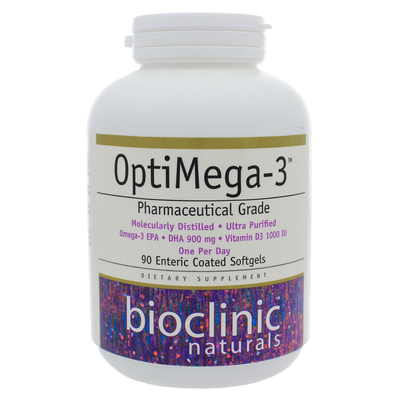Vitamin D and omega-3 fatty acids from fish oil are among the most powerful nutrients for improving overall health, and they are also among the most commonly deficient. EPA and DHA improve a number of cardiovascular risk factors, including lowering of atherosclerotic burden, reducing triglyceride levels and blood pressure, and improving platelet and vascular function. Vitamin D has also been shown to modify cardiovascular risk, and reduce the risk of several cancers, autoimmune disease, osteoporotic fractures, and overall mortality. EPA and DHA are essential to the resolution of inflammatory processes as well as tissue repair, by providing the substrates for anti-inflammatory prostaglandins, resolvins, and protectins, and vitamin D has recently been shown to have anti-inflammatory effects as well. Omega-3 fatty acids are incorporated into membrane phospholipids, affecting cellular membrane organization, ion permeability, intracellular signaling, gene expression, and the activity of membrane-associated proteins. EPA and DHA combined with vitamin D are likely to have synergistic benefits for improving overall wellness, as well as for preventing and treating a wide variety of cardiovascular, inflammatory, and autoimmune conditions.
Benefits
High dose of omega-3 fatty acids and Vitamin D allows for convenient once daily dosing
The pharmaceutical grade omega-3 blend is the only fish oil in the world to have achieved the highest USP standard verifying the quality and consistency of the fish oil
Stringent quality control standards ensure that this highly-purified fish oil concentrate is free from lipid peroxides and environmental pollutants, including heavy metals, pesticides, dioxins, PCBs and other harmful compounds
Omega-3 fish oil is sourced from wild anchovies, sardines, and/or mackerel, one of the best natural sources of EPA and DHA
Harvested through sustainable fishing practices
These small fish are less likely to be exposed to toxins because they are shortlived, and low on the food chain
Wild fish are superior to farmed fish as they not only have more omega-3s, but contain less saturated fat and no antibiotic or hormone residues
1 softgel 2–4 times per day or as directed by a health care practitioner.
For Mood Balance: 1 softgel 3–4 times per day or as directed by a health care practitioner.
For Reducing Pain of Rheumatoid Arthritis: 5 softgels per day or as directed by a health care practitioner.
Serving Size: 1 Softgel
Each Softgel Contains:
Fish Oil Concentrate … 1065mg
(molecularly distilled, ultra purified)
(anchovy, sardine and/or mackerel)
Omega-3 Fatty Acids … 630 mg
Eicosapentaenoic Acid (EPA) … 400 mg
Docosahexaenoic Acid (DHA) … 200 mg
Other Ingredients: Softgel (gelatin, glycerin, purified water), enteric coating (purified water, ethylcellulose, medium chain triglycerides, oleic acid, sodium alginate, stearic acid), natural vitamin tocopherols and soy lecithin.
Contains no artificial preservatives, colours or sweeteners; no dairy, gluten, wheat or yeast.
Contains no artificial preservatives, colour or sweeteners and no dairy, wheat or yeast.
Individuals with an allergy to fish or seafood should use caution, though fish oil is rarely allergenic. Both benefit and risk has been documented for those at risk of or being treated for cardiac arrhythmias, with close supervision indicated. Pregnant and nursing women are often advised to consume a minimum of 300mg DHA per day, and although DHA is recognized as essential to neurological development, no dosage recommendations have been made for children or infants. Supplemental vitamin D should be used with caution in those with sarcoidosis, lymphoma, tuberculosis, hypercalcemia, or renal impairment.
The antihypertensive effect of fish oil and/or vitamin D may potentially reduce the need or dosage for blood pressure medications, and patients should be closely monitored. Because fish oil has an antithrombotic effect, caution is advised for those on anticlotting, antiplatelet, or anticoagulant medications, or those at high risk of bleeding. At doses greater than 3g per day, hyperglycemia has been observed in diabetics and those with hypertriglyceridemia, and close monitoring of patients on anti-diabetic medication is recommended. Vitamin D may increase the risk for hypercalcemia when taken with a thiazide medication (diuretic). Benefit has been shown when fish oil is taken with statins, SSRIs, anti-convulsant, and cytotoxic medications.
Keep out of reach of children.
*These statements have not been evaluated by the Food and Drug Administration. This product is not intended to diagnose, treat, cure or prevent any disease.






Reviews
There are no reviews yet.